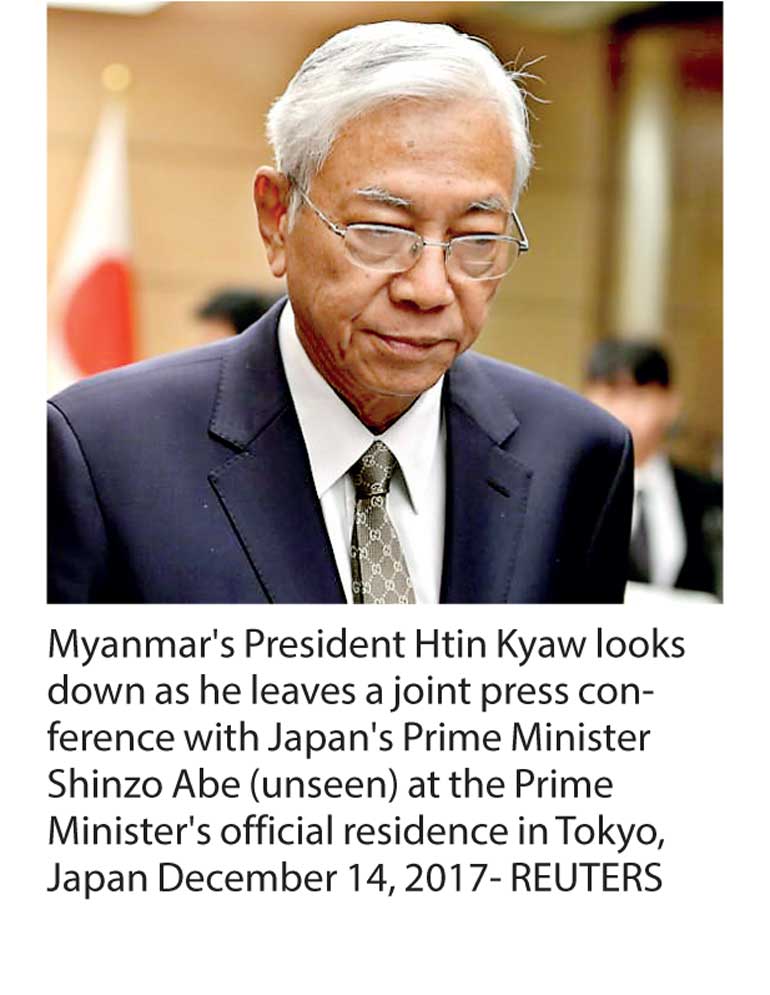Thursday Feb 26, 2026
Thursday Feb 26, 2026
Friday, 5 January 2018 00:00 - - {{hitsCtrl.values.hits}}
 YANGON (Reuters): Myanmar’s civilian president called in an Independence Day speech on Thursday for reform of a military-drafted constitution and for justice for all recognised minorities under a federal system, but made no mention of the treatment of its Rohingya Muslim people.
YANGON (Reuters): Myanmar’s civilian president called in an Independence Day speech on Thursday for reform of a military-drafted constitution and for justice for all recognised minorities under a federal system, but made no mention of the treatment of its Rohingya Muslim people.
Amending the charter to remove a dominant political role for the military has been one of the most contentious issues facing Myanmar as it emerges from nearly half a century of strict army rule. The debate over constitutional reform, however, has been muted since the assassination in January last year of a lawyer advising government leader Aung San Suu Kyi’s ruling party on the issue.
“As we build the Democratic Federal Republic, in accordance with the results of the political dialogues, we all need to work collectively for creating a suitable constitution,” President Htin Kyaw said in his speech marking the 70th anniversary of Myanmar’s independence from Britain. Htin Kyaw’s post is largely ceremonial but he is a close ally of Suu Kyi. He did not elaborate on what he meant by suitable or spell out why he was suggesting the 2008 constitution drawn up by the military was unsuitable. The constitution bars Suu Kyi from becoming president because it rules out candidates with a foreign spouse or child. Suu Kyi’s late husband was British as are her two sons.
It also reserves for the military one quarter of the seats in parliament and several major cabinet posts, including defence, interior and border affairs, giving it an effective veto over constitutional change and control of security affairs.
Myanmar began emerging from 49 years of military rule in 2011. Suu Kyi’s party swept a 2015 election and formed a government but concern is growing that the reform programme is stalling or even sliding back.
This has been compounded by attacks on press freedom, including the detention of several journalists over the past year. On Dec. 12, the authorities arrested two Reuters reporters who had covered the army crackdown that has led to the mass flight of Rohingya residents of Rakhine State across the border into Bangladesh.
Htin Kyaw called for respect for human rights but he did not refer to the crisis over the exodus of 655,000 Rohingya people, nor to the international condemnation it has generated.
“We are working for the emergence of a democratic state based on the principles of freedom for all ethnic national races, justice, equality and right of self-determination,” he said. “National race” is a term used by Myanmar referring to what it categorises as indigenous ethnic groups. The Rohingya, who have traditionally lived in Rakhine, have been denied inclusion as authorities regard them as illegal immigrants who have crossed over from Bangladesh.